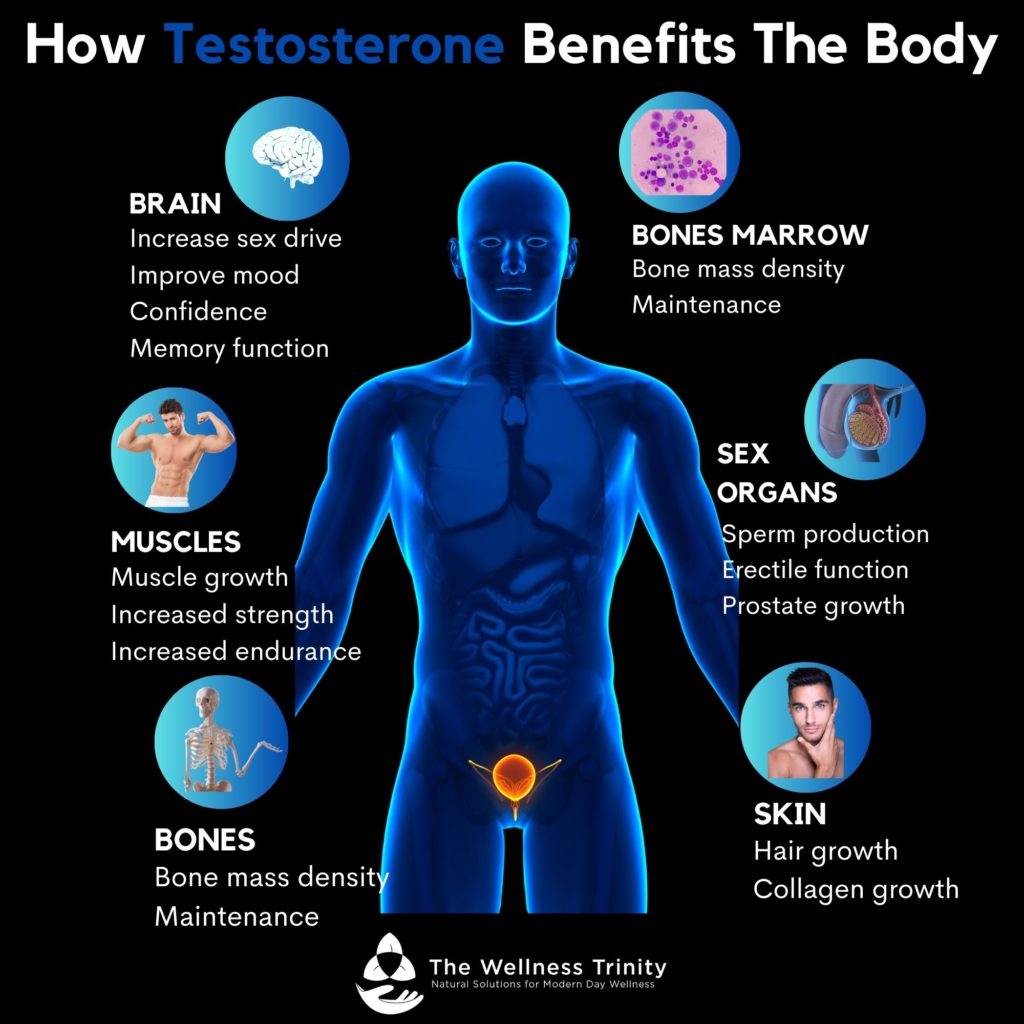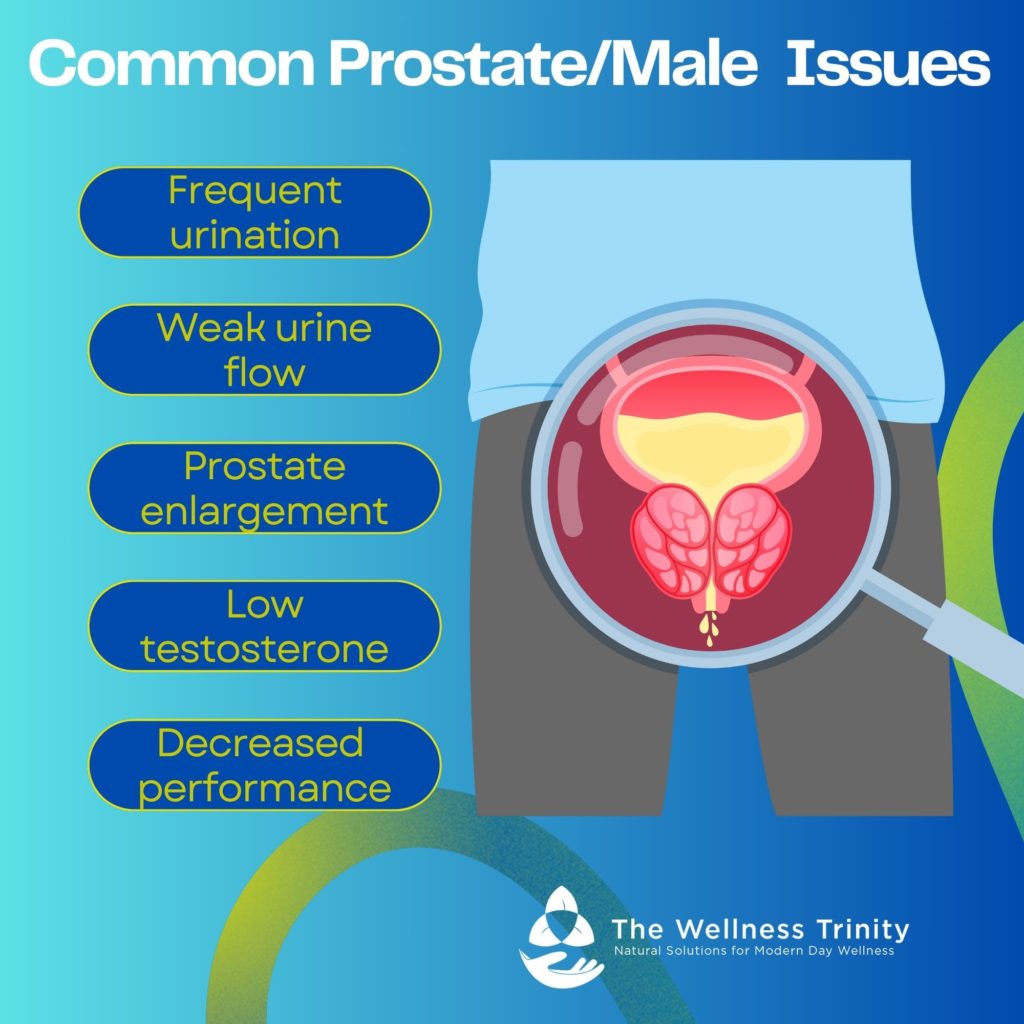Discover the Power of Testosterone for Optimal Male Health
Testosterone is often associated with masculinity, but its role in male health extends far beyond developing secondary sexual characteristics during puberty.
This vital hormone is integral to a man’s physical, mental, and emotional well-being throughout his life. In this blog post, we will explore what testosterone is, its benefits, health concerns related to low levels, its impact on mental well-being, and the alarming decline in testosterone levels over the past decade.
We will also delve into factors contributing to this decline and relevant research findings highlighting the importance of maintaining healthy testosterone levels.
What is Testosterone?
Testosterone is a steroid hormone primarily produced in the testes in men and, to a lesser extent, in the ovaries in women. It belongs to a class of hormones known as androgens, which are responsible for the development and maintenance of male characteristics.
Testosterone plays a crucial role in:
- Muscle Mass and Strength: Promotes muscle growth and enhances physical performance.
- Bone Density: Helps maintain bone strength and reduces the risk of osteoporosis.
- Fat Distribution: Influences the distribution of body fat.
- Sexual Function: Drives libido and supports erectile function.
- Sperm Production: Essential for the production of healthy sperm.
- Red Blood Cell Production: Stimulates the production of red blood cells.
Maintaining optimal testosterone levels can lead to numerous health benefits, including:
- Increased Muscle Mass and Strength: Higher testosterone levels are associated with better muscle development and physical performance.
- Improved Mood and Mental Health: Adequate testosterone levels contribute to a positive mood and reduced risk of depression.
- Enhanced Sexual Health: Healthy testosterone levels support libido and sexual function.
- Better Cognitive Function: Testosterone has been linked to improved memory and cognitive abilities.
- Higher Energy Levels: Adequate testosterone levels help maintain energy and reduce fatigue.
Health Concerns Related to Low Testosterone
Low testosterone levels, also known as hypogonadism, can lead to several health issues, such as:
- Reduced Muscle Mass and Strength: Low testosterone can result in muscle wasting and decreased strength.
- Increased Body Fat: Men with low testosterone often experience increased body fat, particularly around the abdomen.
- Decreased Bone Density: Low levels can lead to weaker bones and a higher risk of fractures.
- Sexual Dysfunction: Low testosterone is a common cause of reduced libido and erectile dysfunction.
- Mood Changes: Men with low testosterone levels may experience mood swings, irritability, and depression.
- Fatigue: Persistent fatigue and low energy are common symptoms of low testosterone.
Mental Well-Being and Testosterone
Testosterone plays a significant role in mental health. Studies have shown that men with healthy testosterone levels are less likely to suffer from depression, anxiety, and other mood disorders.
Testosterone influences brain functions related to mood regulation, memory, and cognitive abilities. Low levels of testosterone can impair these functions, leading to mental health challenges.
The Decline in Testosterone Levels Over the Past Decade
There has been a noticeable decline in testosterone levels among men over the past decade. Research indicates that average testosterone levels have decreased significantly, even among younger men.
This decline has raised concerns among healthcare professionals due to its potential impact on men’s health and well-being.
Factors Contributing to Decreasing Testosterone Levels
Several factors have been identified as contributing to the decline in testosterone levels, including:
- Lifestyle Factors: Poor diet, lack of exercise, excessive alcohol consumption, and smoking can negatively impact testosterone levels.
- Environmental Factors: Exposure to endocrine-disrupting chemicals (EDCs) such as pesticides, plastics, and other pollutants can interfere with hormone production.
- Chronic Stress: Prolonged stress increases cortisol levels, which can suppress testosterone production.
- Obesity: Higher body fat levels are associated with lower testosterone levels. Fat tissue can convert testosterone to estrogen, further reducing testosterone levels.
- Sleep Deprivation: Lack of quality sleep can lower testosterone production.
- Medical Conditions: Conditions such as diabetes, metabolic syndrome, and certain infections can affect testosterone levels.
Relevant Research Findings and Insights
Recent studies have provided valuable insights into the importance of maintaining healthy testosterone levels:
– A study published in the Journal of Clinical Endocrinology & Metabolism found that men with low testosterone levels had a higher risk of developing cardiovascular diseases.
– Research in the American Journal of Psychiatry highlighted a correlation between low testosterone levels and increased risk of depression in men.
– Findings from the Massachusetts Male Aging Study revealed that average testosterone levels in men have been declining by about 1% per year since the 1980s, regardless of age.
These findings underscore the need for awareness and proactive measures to maintain healthy testosterone levels.
How to Test your Testosterone
To monitor your testosterone levels and take the first step towards optimizing your health, visit our testing page HORMONE TESTING. Together, we can ensure that you have the knowledge and tools needed to thrive in good health.
Naturally Increasing Testosterone
We are committed to supporting you on this journey. Our T FORCE PRO offers a comprehensive solution to help you maintain healthy testosterone levels. By supplementing and monitoring your levels regularly, you can take control of your hormone health and overall vitality.
Introducing the T-FORCE PRO– Your Ultimate Testosterone Powerhouse!
- Unleash Your Inner Strength! Boost Testosterone Naturally!
- Elevate Your Mood and Confidence!
- Support Testicular Health for Peak Performance!
- Enhance Sperm Health and Fertility!
- Safeguard Your Prostate for Long-Term Well-Being!
Conclusion
Testosterone is a crucial hormone that significantly impacts various aspects of male health, from physical strength to mental well-being.
The decline in testosterone levels over recent decades is a concerning trend that requires attention and action. By understanding the factors contributing to this decline and the benefits of maintaining healthy testosterone levels, men can take steps to improve their overall health and quality of life.
If you suspect that your testosterone levels might be low or want to understand your hormonal health better, consider taking our **Hormone Profile Test**.
For a holistic approach to address deeper root causes, explore our **Cerebral Detox Program**. [Learn more and sign up here]












